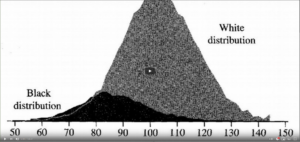First we had 3 laws, then a 4th. I’ll propose a 5th:
-
All human behavioral traits are heritable.
- The effect of being raised in the same family is smaller than the effect of genes.
- A substantial portion of the variation in complex human behavioral traits is not accounted for by the effects of genes or families.
- A typical human behavioral trait is associated with very many genetic variants, each of which accounts for a very small percentage of the behavioral variability.
- All phenotypic relationships are to some degree genetically mediated or confounded.
I note that the laws get more complicated over time. The first three deal the broad variance partitioning modeling results. The fourth is about the genetic architecture. The fifth is about multivariate variance partitioning. The corollaries of the 5th law are:
- Genetically insensitive non-randomized designs will always lead to too high estimates of causal effect sizes of environmental effects. (I believe this claim has more or less always been confirmed in empirical studies.)
- Statistically controlling for confounders in non-BG family studies will always be an overcorrection (sociologist fallacy).
Using the stronger universal quantifier makes for a more useful laws, if true. It means one can generalize without doubt to new cases (cf. validity generalization). It also makes them much easier to refute. Perhaps some non-trivial exceptions to the above will be found and I will have to use “almost all”.
What other candidates for laws can we come up with?
- Heritability increases from early childhood to adulthood (Wilson’s law).
- Others?
